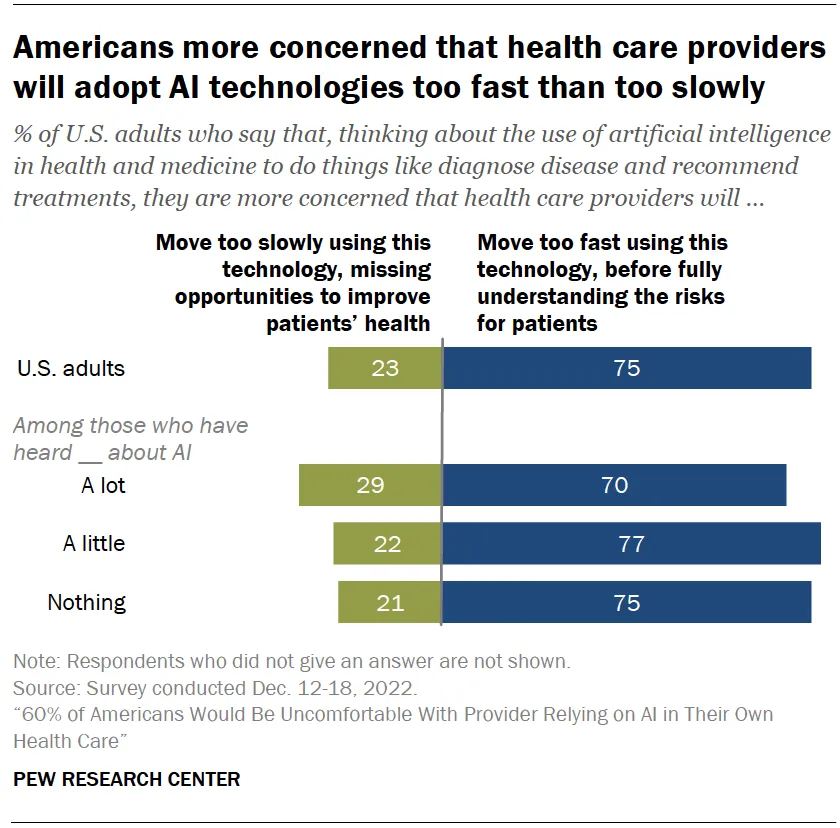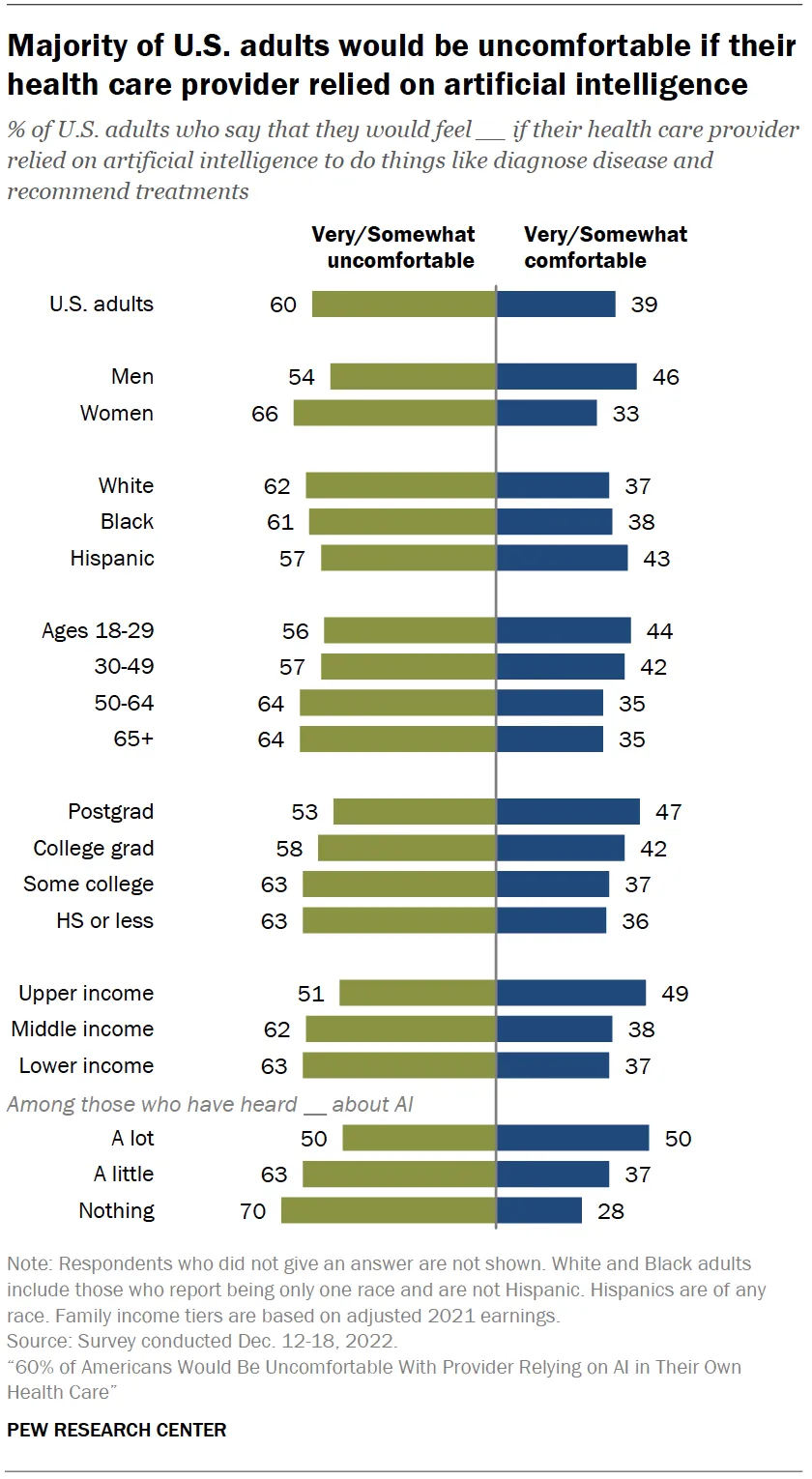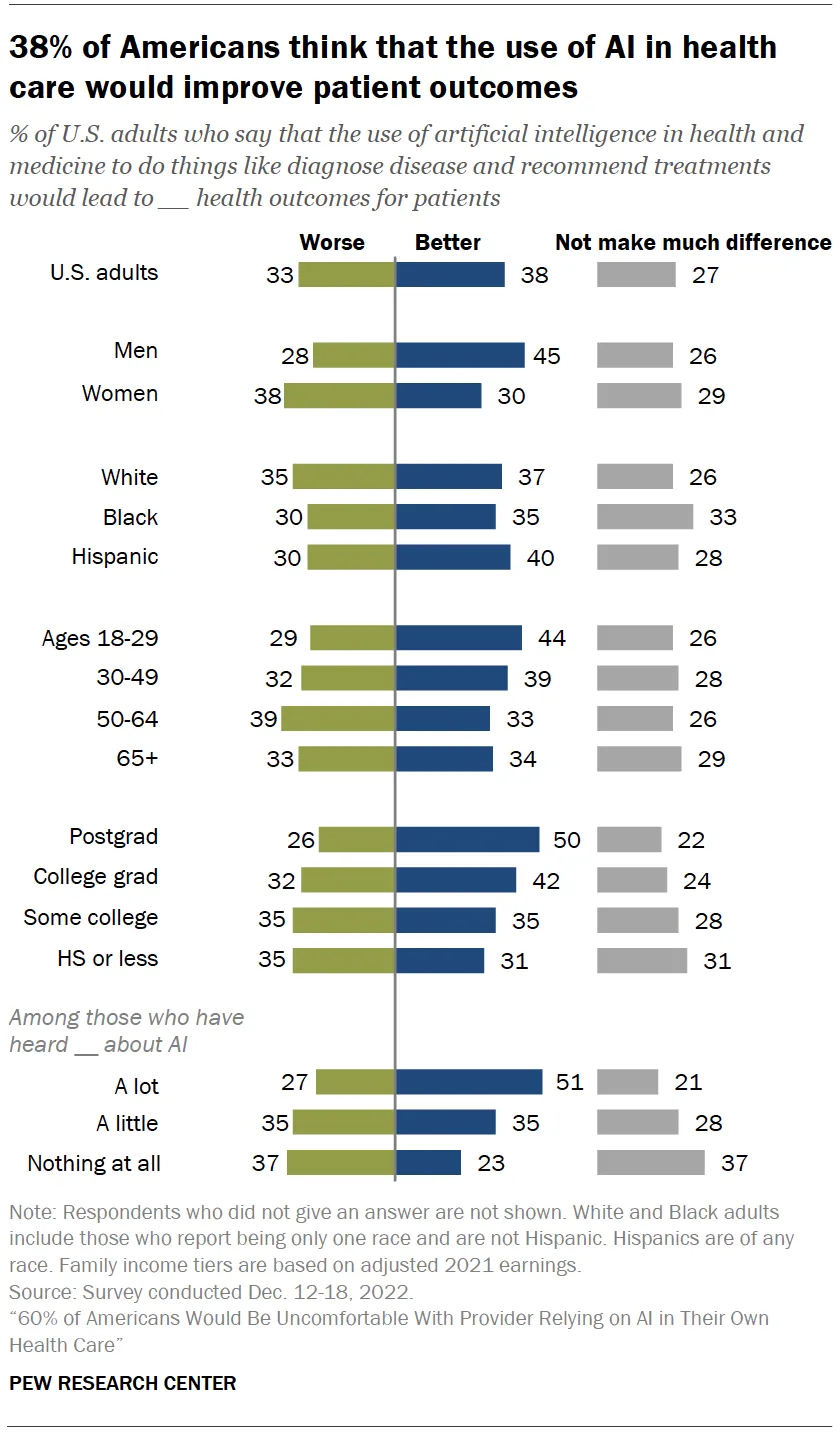The rise of the internet has made it so that a lot of highly technical information is now available at the fingertips of consumers. This has led to a huge increase in people who turn to Google to get the medical advice that they need instead of going to a trained medical practitioner. While this practice doesn’t look like it will go away anytime soon, it might get replaced by a new contender, namely ChatGPT and other forms of AI.
ChatGPT has the added advantage of being usable by medical practitioners themselves, but in spite of the fact that this is the case around 60% of consumers said that they just aren’t comfortable with that. With all of that having been said and now out of the way, it is important to note that 33% of consumers said that it could make their healthcare worse, 27% felt like it wouldn’t really do all that much good, and finally 38% stated that it could potentially have some kind of a positive effect.
It appears that customers are wary of healthcare providers might not become fully cognizant of the risks associated with AI assisted medical advice prior to offering it up to their patients. Approximately 75% of consumers felt that this was a very pertinent risk, which indicates that this form of healthcare could have a harder time getting widely accepted than might have been the case otherwise.
Another major concern that quite a few consumers tend to have is that they would no longer have the same kinds of relationships with their doctors. 57% of surveyed consumers suggested that the inclusion of AI could negatively impact the relationship that doctors have with their patients, and that might result in them no longer providing the same kind of bedside manner that patients tend to require.
What’s more, 37% are concerned about the implications this would have regarding privacy. There are clearly a lot of issues that need to be ironed out, and Dr. ChatGPT won’t become commonplace until and unless they end up getting resolved as soon as possible.
Read next: Are AI Tools Useful For Small Businesses? This New Study Has The Answer
ChatGPT has the added advantage of being usable by medical practitioners themselves, but in spite of the fact that this is the case around 60% of consumers said that they just aren’t comfortable with that. With all of that having been said and now out of the way, it is important to note that 33% of consumers said that it could make their healthcare worse, 27% felt like it wouldn’t really do all that much good, and finally 38% stated that it could potentially have some kind of a positive effect.
It appears that customers are wary of healthcare providers might not become fully cognizant of the risks associated with AI assisted medical advice prior to offering it up to their patients. Approximately 75% of consumers felt that this was a very pertinent risk, which indicates that this form of healthcare could have a harder time getting widely accepted than might have been the case otherwise.
Another major concern that quite a few consumers tend to have is that they would no longer have the same kinds of relationships with their doctors. 57% of surveyed consumers suggested that the inclusion of AI could negatively impact the relationship that doctors have with their patients, and that might result in them no longer providing the same kind of bedside manner that patients tend to require.
What’s more, 37% are concerned about the implications this would have regarding privacy. There are clearly a lot of issues that need to be ironed out, and Dr. ChatGPT won’t become commonplace until and unless they end up getting resolved as soon as possible.
Read next: Are AI Tools Useful For Small Businesses? This New Study Has The Answer





